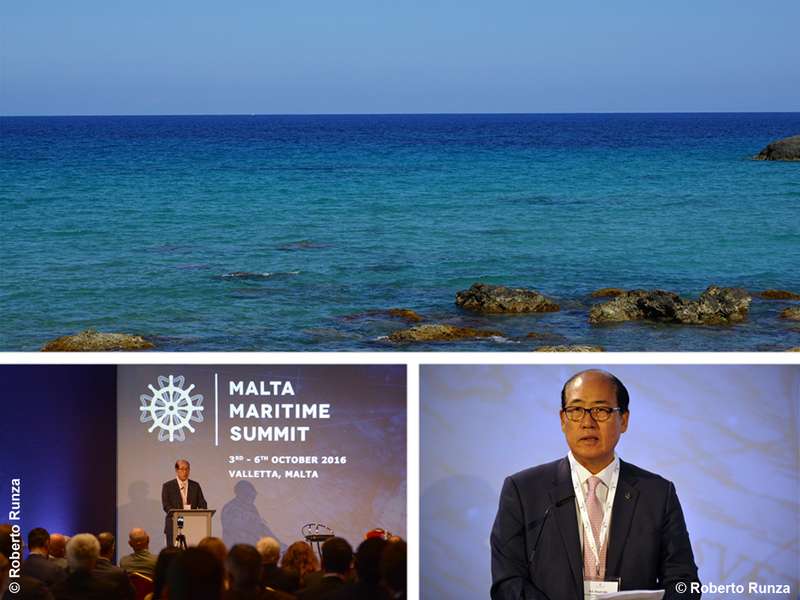IMO joined celebrations marking four decades of cooperation in the Mediterranean to prevent and combat marine pollution from ships under the Regional Marine Pollution Emergency Response Centre for the Mediterranean Sea (REMPEC). Speaking at the REMPEC 40th Anniversary Conference during the Malta Maritime Summit (3-6 October), IMO Secretary-General Kitack Lim heralded REMPEC as a vitally important but often unsung player in the battle to protect one of the world's most sensitive and vulnerable marine assets. Mr. Lim also emphasized IMO’s pride in the role it played in helping to set up REMPEC – and of its continuing work in administering the Centre.
REMPEC’s work today addresses pollution from oil and hazardous and noxious substances; surveillance for possible illegal operational discharges; ballast water discharges; emissions from ships and anti-fouling systems. It is also working with countries to ensure the provision of adequate port reception facilities in the main ports around the Mediterranean Sea.
Originally called The Regional Oil Combating Centre (ROCC), it was the first regional centre of its kind. It became known as REMPEC in 1989, following the extension of its mandate to include hazardous substances other than oil. Since then, it has contributed significantly to the development and strengthening of the Mediterranean States' capacities to prevent and deal with marine pollution incidents.
Additionally, Mr. Lim gave the keynote address during the inauguration of the first ever Malta Maritime Summit (4 October), in which he gave an insight into IMO's present and future challenges, and emphasized that IMO’s mission reaches far beyond the Organization’s immediate constituency. “I believe that a major challenge for IMO and the maritime community in the years ahead will be to assess and define their roles, and those of all the various stakeholders, in the establishment of cohesive and all-embracing ocean governance structures. IMO has its mandate and I believe is ready to do more, within the UN system, to help integrate maritime policies on a global scale,” he said.
